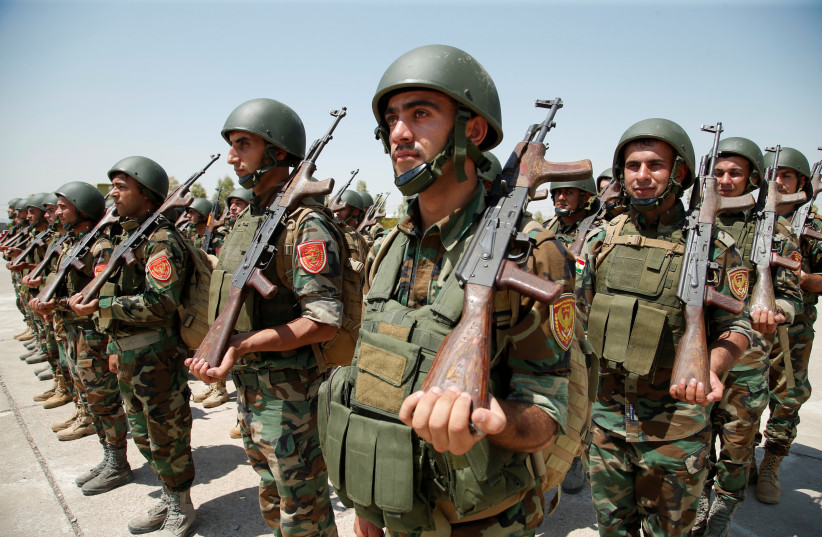The autonomous Kurdistan Region of Iraq is facing a new and potentially unprecedented crisis as it faces pressure from Baghdad, Iran, and Turkey. The pressure comes six years after it held a vote on independence. That era is in marked contrast to today’s situation.
In 2017, the region played a key role in defeating ISIS, and it is now a stable, secure area of Iraq where many people come to do business and enjoy tourism opportunities. Nature abhors a vacuum, however, and many neighbors are jealous of its success, chomping at the bit to undermine it.
In recent days and months, there have been several processes threatening the region. First, the region is divided internally between two large Kurdish political parties, the KDP and PUK.
The KDP is stronger and dominant in the capital, Erbil. It also enjoys amicable ties with Ankara and therefore has strong trading and financial ties across the border in Turkey. But that doesn’t stop Ankara from carrying on a military campaign in northern Iraq that often harms Kurds.
Iran threatening military action
Turkey claims to be fighting the PKK, which it calls “terrorists.” However, the bombardments against the alleged PKK elements led to concern for Kurdish civilians and other communities in and around Dohuk, one of the region’s cities.
Iran, meanwhile, is also threatening military action in the region.

Tehran has closer ties to the PUK than the KDP. Iran also has ratcheted up pressure on Kurdish dissident groups. This is in part because of the anniversary of the killing of Mahsa Amini, an Iranian Kurdish woman, by Iran’s so-called morality police.
Amini was Kurdish, and Iran has cracked down on Kurdish groups over the last year, even launching drone and artillery attacks on Kurds in Iraq. Iran now says there is a deadline for Iraq to take action and disarm dissident groups. Tehran’s goal is to create an excuse for more military operations.
It could use Iranian-backed militias in Kirkuk to threaten groups near Sulaymaniyah, or it could use drones and missiles. Iran often tests the precision of its missiles and drones by attacking Kurds in Iraq, and then it rolls out the weapons for use elsewhere.
At the same time, the Kurdistan Region is facing pressure from Baghdad. This includes threats to Kurds in Kirkuk, which Baghdad’s federal forces have controlled since 2017, and also budget threats and other means.
The Kurdistan Region had fulfilled its obligations and dealt with Baghdad with the utmost transparency, Kurdistan Region President Nechirvan Barzani said Wednesday in a statement.
Washington-based Al-Monitor news site reported: “Barzani has appealed to President Joe Biden to intervene in a deepening crisis with the central government in Baghdad, airing fears that the Kurdistan Region might even collapse as an entity if the crisis is left unchecked, Al-Monitor has learned.”
Iran says the region has until September 19 to disarm and deal with Kurdish dissident groups that oppose Iran. These groups, including the PDKI, Komala, PJAK, and PAK, may be divided in some ways by party affiliation and tactics, but they all oppose the Iranian regime, and they are increasingly united in concerns about Iran’s threats.
Taken together, the issues Erbil now faces in relations with Baghdad, and the pressure from Iran and Turkey, appear to be a major challenge. The US and Western powers have often supported the region in the past. In addition, the region has economic ties with the Gulf. Nevertheless, it is isolated in northern Iraq. It is a kind of strategic hinge around which Iran, Turkey, and Baghdad revolve.
The US also uses the region to supply troops in eastern Syria. Iran and Turkey oppose the US presence in Syria. They also want to pressure Erbil because US troops and assets are located near Erbil and use Erbil’s airport.
